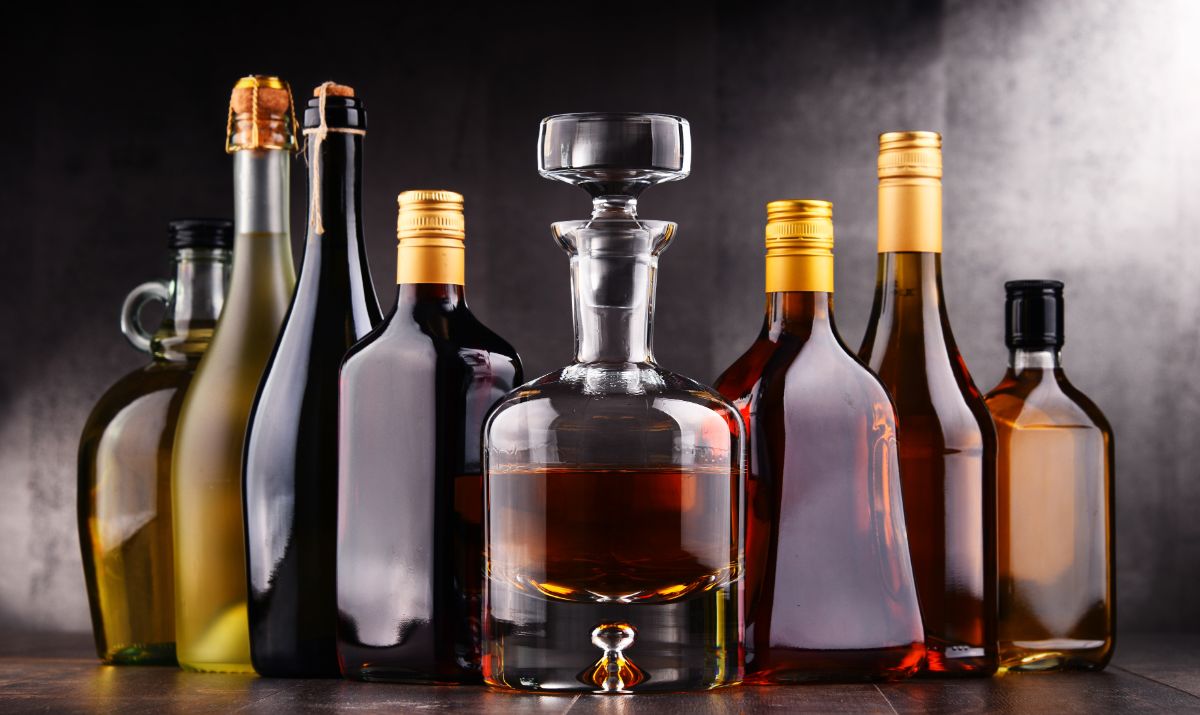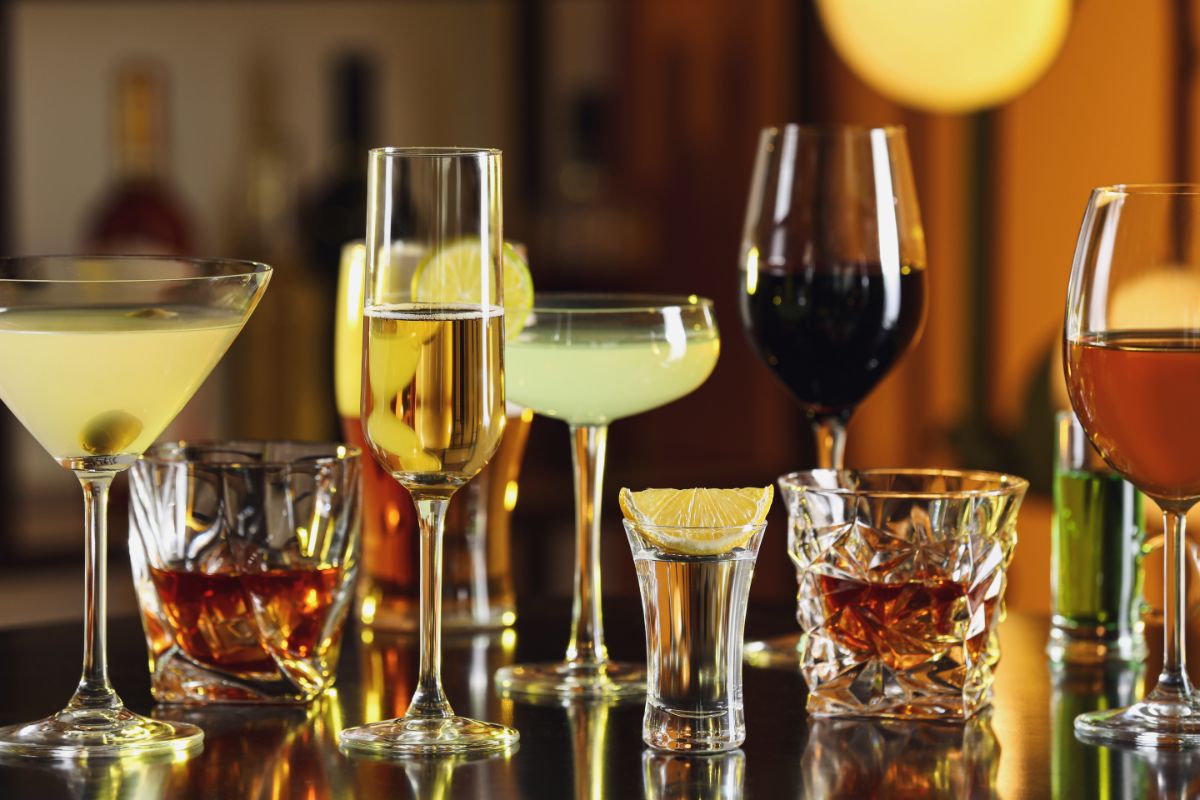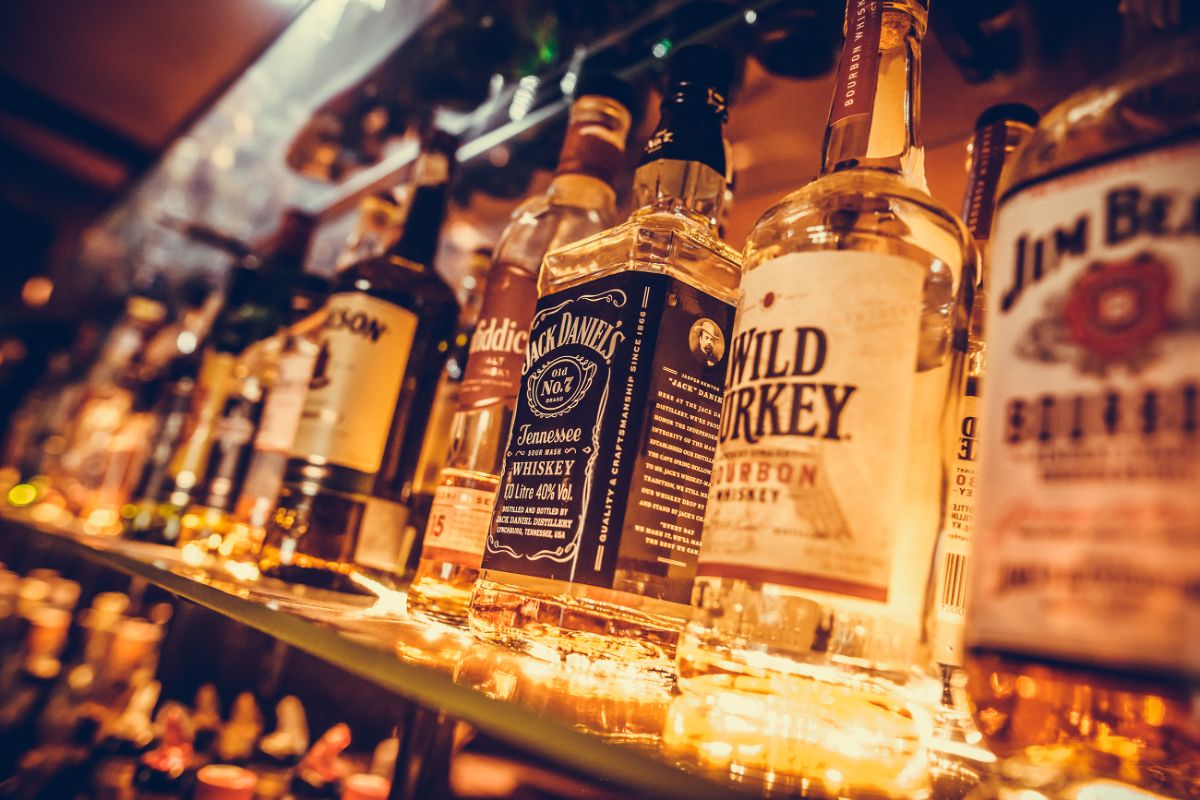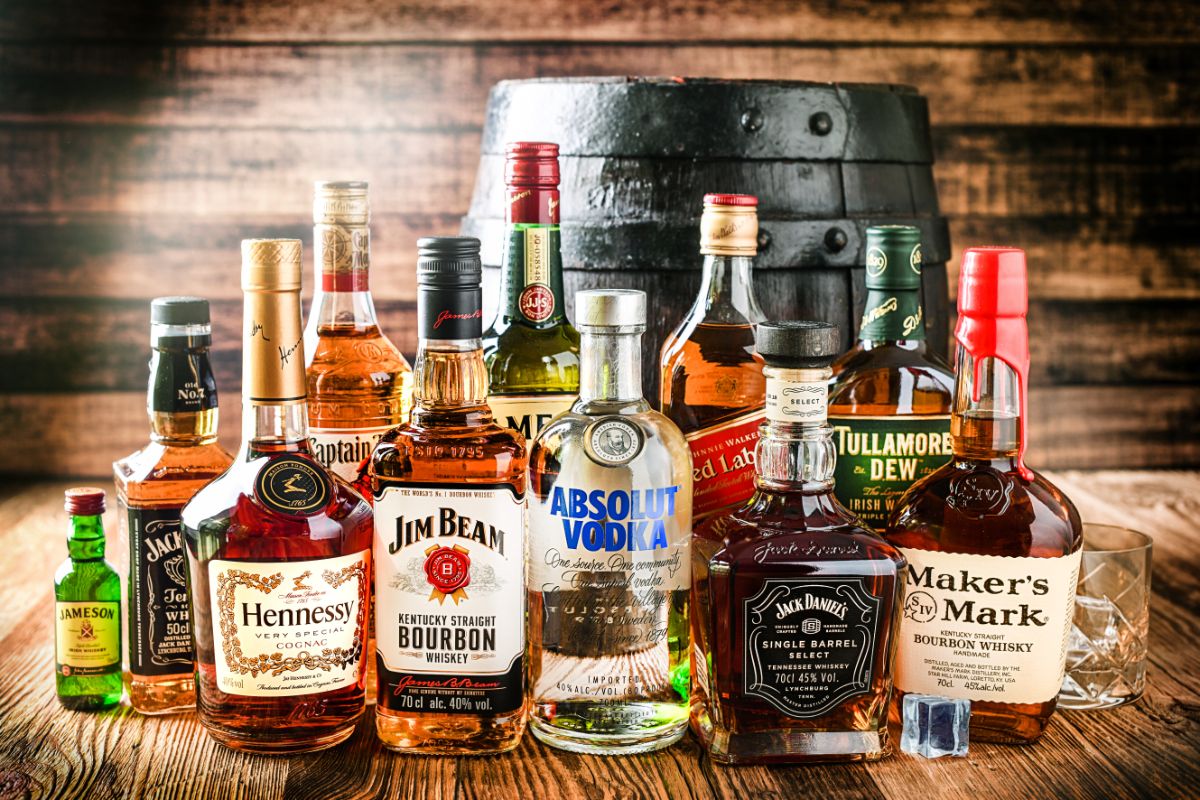
If you’re craving a warm alcoholic drink in cold weather, you’re probably reading recipes online about heating alcohol on your stovetop. But it might get you wondering—can you microwave alcohol?
You should never microwave most alcohol, as it’s flammable and can lead to a fire. That includes both alcohol you drink and the medical kind, like rubbing alcohol.
We’ve given you the short answer. Now, let’s explore the science behind this and alternative methods you can use instead of microwaving alcohol.
Jump to:
What Happens if You Heat Up Alcohol?

If someone asks you, “Can you microwave alcohol?” the answer is an easy “no.” That’s because alcohol has weak hydrocarbon chemical compounds, meaning it’s quick to release bursts of energy under hot conditions.
In layperson’s terms, this means alcohol will burst into flames if you apply enough heat to it.
There’s no shortage of YouTube videos of people doing just this by setting their microwaves on fire through heating alcohol. Please don’t try this—it’s a dangerous practice.
The Health Dangers of Heated Alcohol
Not only can microwaving alcohol lead to a fire, but it also has dangers to your health. That’s because the vapors from heating alcohol can seep into your bloodstream if you inhale them.
You can get drunk very quickly by inhaling such vapors. That’s because they make a bee-line to your brain, impacting you faster and more intensely than drinking alcohol.
So, even if you happen to get away with microwaving alcohol without causing a fire, you or anyone in the vicinity of the microwave could experience serious side effects if you inhale a lot of the heated alcohol vapors.
When Is It Okay to Microwave Alcohol?
It’s never okay to microwave alcohol in its straight liquid form. However, if you have a recipe that contains alcohol and you want to reheat it, there’s a low chance you’ll experience the combustion we described.
That’s because the alcohol will already have gone through a cooking phase, removing the compounds that make it so prone to catching on fire.
So, it’s generally safe to use a microwave for heating stews, baked goods, and other items containing small amounts of already cooked alcohol.
Nevertheless, we’d be remiss not to say that you should always keep a fire extinguisher near your kitchen and never leave your microwave unattended.
Alternatives To Microwaving Alcohol

There are three main reasons why people typically want to heat alcohol: for cooking, for medical reasons, and for making warm mixed drinks. Luckily, we have a solution for each of them.
Cooking With Alcohol
Instead of warming up alcohol in the microwave for cooking, add it directly to the dishes you’re cooking on the stove or in the oven.
As with microwaving, putting alcohol straight on a hot stove or oven can also cause a fire. For this reason, it’s crucial to already have some ingredients in the pot or pan before adding some alcohol.
Using Alcohol as Medicine
If you want to use warm rubbing alcohol or another alcohol-based substance for treating wounds, opt for water instead. We know it’s not a perfect solution, but it’s the safest.
Meanwhile, you can let your alcohol solution sit in warmer temperatures (away from sunlight) to gradually and safely warm it up.
Making Warm Mixed Drinks
Some of the best uses of warm alcohol are for mixed drinks. So, here’s an easy solution—instead of mixing the drink with alcohol, let the alcohol sit at room temperature. Then, warm up the ingredients in the microwave first.
After, pour the room temperature alcohol into the hot drink you microwaved, and voila! You’ve got yourself a warm and safe mixed alcoholic drink.
Can You Heat Whiskey in Microwave?

You shouldn’t heat whiskey in the microwave. Instead, if you’re making a mixed drink with whisky, heat the other ingredients and then add the whiskey to them after heating.
That said, some people have had success heating mixed whiskey drinks in the microwave with lemon juice and water. We don’t recommend this, though. Should you attempt it, we strongly recommend having a fire extinguisher nearby and heating your drink in slow increments.
What Happens if You Put Vodka in a Microwave?
If you put vodka in a microwave and it doesn’t catch fire first, it’ll boil once it reaches 172.76 degrees Fahrenheit (78.2 degrees Celsius). Like any alcohol that undergoes heating, it will evaporate like water.
That said, we never recommend putting vodka in a microwave. If you want to make a mixed drink, it’s safer to heat the ingredients separately in the microwave and then add the room-temperature vodka to them.
Does Microwaving Liquour Remove the Alcohol?
Heating liquor is an effective way to remove the alcohol if you cook it long enough, but we don’t recommend doing so via the microwave. As mentioned, it could cause a fire.
Another reason is that the amount of alcohol that heat removes from liquor or another alcoholic beverage depends on how long you cook it at the boiling point of alcohol.
Researchers found that heating alcohol at its boiling point for 15 minutes left a massive 40% alcohol content still in the dish. In contrast, it takes 2.5 hours for that number to drop to 5%. Furthermore, if you cook meats or baked goods for 25 minutes without stirring them, about 45% of the alcohol level will remain.
So, it’s safe to say that the old belief that you can cook out the alcohol, whether in the microwave or otherwise, is misleading.
The Bottom Line
If someone asks you, “Can you microwave alcohol?” you now know to give them a resounding “no.” Microwaving alcohol is dangerous to your microwave at best and your home and physical health at worst.
The good news is that there are alternatives to microwaving alcohol. So, we encourage you to microwave non-alcoholic ingredients or add alcohol to dishes on the stovetop or baked goods that already have ingredients.
It’s typically safe to reheat food with alcohol as an ingredient in the microwave, as the small amounts of cooked alcohol will not have the explosive impact that pure alcohol can have.




